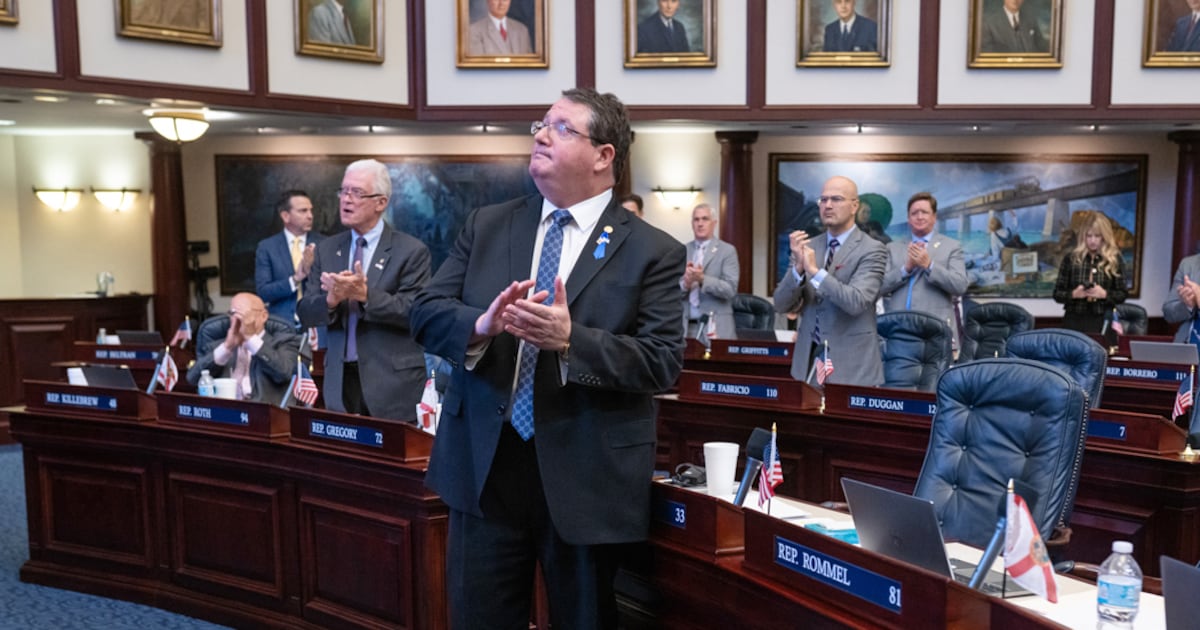On Black Friday, Kentucky native Clinton Lewis won’t be rushing to the mall for deals. The photographer won’t be fatigued from a six-hour line outside Walmart, or stressed from pushing through crowds. He’ll be outside at Low Hollow in Bowling Green, Kentucky, running the trails.
Lewis is one of at least 1 million people who have decided to #OptOutside on Black Friday, i.e., to forgo the mall and venture into nature instead—a phenomenon that may just be the answer to your holiday stress. Call it Green Friday.
The movement, which has gone viral, began with a letter that outdoor apparel company REI delivered to its more than 5 million members on Oct. 27. In it, the company made a big announcement. “Black Friday is the perfect time to remind ourselves of the essential truth that life is richer, more connected and complete when you choose to spend it outside,” wrote CEO Jerry Stritzke. “We’re closing our doors, paying our employees to get out there.”
ADVERTISEMENT
For the first time in its 76-year history, REI will close the day after Thanksgiving. Instead of reaping the rewards of the biggest shopping day of the year, which brought out 133 million people in 2014, the co-op is shutting its doors. Its 12,139 employees are being paid, more or less, to go on a hike.
The campaign, officially called #OptOutside, is sleek. Superimposed on scenes of majestic mountain and flowing waterfalls are words of encouragement and links with more information about the #OptOutside campaign. In one poster, the company writes: “While the rest of the world is fighting it out in the aisles, we’ll be spending our day a little differently. Join us.”
Americans, it seems, have been waiting for an opportunity like this one. By midweek, at least 14 states announced they would be issuing free day passes to national parks—including California, which has the most parks per state. One hundred and fifty nonprofits have also jumped on board the Green Friday bandwagon, as well as private companies like Cliff Bar.
Save the Redwoods—the backbone of California’s state parks—was the first major organization to jump on board, offering free park passes at all 49 parks. Jennifer Benito, the group’s director of outreach, sounded overjoyed when we connected on the phone. Nearly 5,000 people have taken advantage of the offer so far, meaning 31 out of 49 parks have reached their limit.
“We’re overwhelmed and overjoyed with the response,” Benito tells The Daily Beast. “It’s so exciting to see that people are gravitating to this.” Save the Redwoods made the decision hoping to build on REI’s momentum and get people enjoying California’s forests. Instead, they sparked a trend all their own—inspiring states from Colorado to North Carolina to present similar offers. “It’s touched me personally,” adds Benito. “It’s a great message for the holidays.”
Even more surprising than the level of response, it seems, are the varied ways that people are choosing to get involved, offering everything from free ski passes to granola bars. Alex Thompson, REI’s VP of communications and public affairs, says his favorite thus far is a Colorado brewery that is giving a free growler to REI employees. “It’s just fun, we’re just happy to see that people are enjoying themselves,” Thompson tells The Daily Beast. “It’s exciting us so much that were able to give a voice to people dedicating their lives to getting outdoors.”
Thompson says dozens of people have taken to Medium to discuss dedicating their lives to “opting outside.” Nikki Mashapure, store manager of the new Woodland Hills, California, REI and 14-year veteran of the company, says she’ll be spending the day off like she spends most of them: hiking. “It’s an extension of the spirit of Thanksgiving,” writes Mashapure. “Giving families a reason to spend quality time together, giving them a reason to interact.”
While the official campaign to ditch the mall and venture into the great outdoors on Black Friday is new, the inspiration behind it is not. Ben Steele, REI’s chief creative officer, said the decision was inspired by a quote, more than a hundred years old, delivered by a trailblazer in the parks world, John Muir: “Thousands of tired, nerve-shaken, over-civilized people are beginning to find out that going to the mountains is going home.”
Muir delivered the quote in 1901, but Steele says it’s as poignant today as it was then. “It feels so germane and so relevant,” he tells The Daily Beast. “That feeling is being exemplified today—I think that is part of why the energy is building.” The magnitude of the response is something Steele calls “humbling” and exciting, creating a platform for “people to talk about the quality of life that happens when they connect to the outdoors.”
It’s not just nature-junkies like Steele who have realized the positive benefits of being among the trees. Science, too, has discovered a correlation between the outdoors and health, one that suggests spending even small amounts of time in nature makes us happy. In a 2010 systematic review titled “Green Perspectives for Public Health,” researchers found a walk in nature to have “short-term restorative effects” for a variety of physiological symptoms—including stress.
While some evidence was contradictory, the researchers concluded that the data “demonstrate a tendency towards a health-promoting and disease-preventing potential of contact with natural outdoor environments compared to urban.” More in-depth studies, they wrote, are needed to strengthen this claim.
Enter Gregory Bratman, a Stanford graduate student, who has been zeroing in on the short-term effects of taking a walk outside in nature. In a study published in June 2015, he asked 60 individuals to take a 50-minute walk through nature. Participants were asked to complete a psychological assessment before and after the walk. Those who walked in nature, he found, exhibited a “decrease in anxiety and rumination,” as well as improved affect and cognition.
In another study released this past July, he took it a step further, analyzing the difference in effect of a 90-minute walk through nature and one through an urban setting. Since urbanization has been shown to increase mental illnesses such as depression, he hypothesized that the walk through nature would have a greater effect on well-being. He was right.
The nature walk resulted in self-reported decreases in rumination and neural activity, whereas one in an urban setting had no such effects. “This study reveals a pathway by which nature experience may improve mental well-being,” Bratman writes. “And suggests that accessible natural areas within urban contexts may be a critical resource for mental health in our rapidly urbanizing world.”
After a traumatic year of police brutality, terrorist threats, and political turmoil, America seems ready for a change of pace. “Thanksgiving is a time about family and connection—about the places and people we love best,” says Steele. “Let’s give people a chance to celebrate.”






